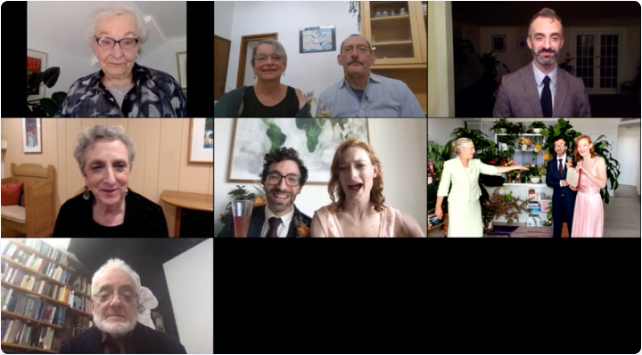
About
One couple who grew up on opposite ends of the earth—Australia and the United States—wanted to get married, but the capital and carbon it would take to gather everyone was a blocker. The couple contemplated eloping, but still wanted to bring their loved ones together to celebrate their marriage. “I was confident I could find the perfect digital ‘venue’,” the bride said. “Turns out, I was overconfident.”
Challenge
“Anyone who’s ever heard a feedback-induced portal to hell open on Zoom is probably aware that, although it is 2020, video conferencing technology never works how it should. Every night for the next week, I experimented with platforms. There was the one that crashed constantly and looked like science fiction from the 70s.
There was the one that could ruin the entire ceremony if a single guest failed to hit mute. The one that cost hundreds of dollars and could only be purchased with an annual subscription – that we would be using a grand total of once.”
Solution
The best option was brand new. It launched around the same time Covid-19 was declared a pandemic. Designed for conferences and expos, the platform is called RingCentral Events. It would allow for a “centre stage” for the ceremony. It would allow for different groups to sit at different “tables”, it would let guests send each other private messages; set up their own video chats and even bump into each other, in a function similar to that late-2000s forest of flashing – Chat Roulette. It looked perfect.”
Result
The wedding ceremony took place with 400 hundred guests from around the world—from Sydney, Canberra, New York, London and Paris. After, the speeches were made and followed by the new bride and groom answering questions in a group while guests socialized together one-on-one.
We’d managed to skip past all the parts of a wedding that made us most stressed, and keep the parts that mattered to us.

Originally published Sep 01, 2022, updated Jun 10, 2024




